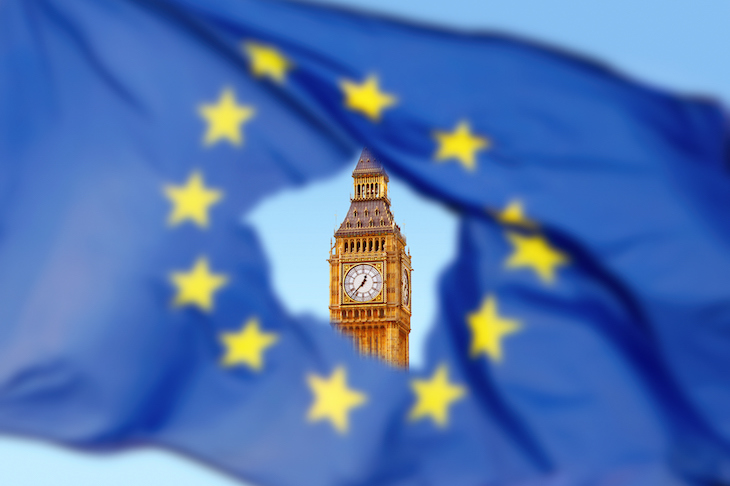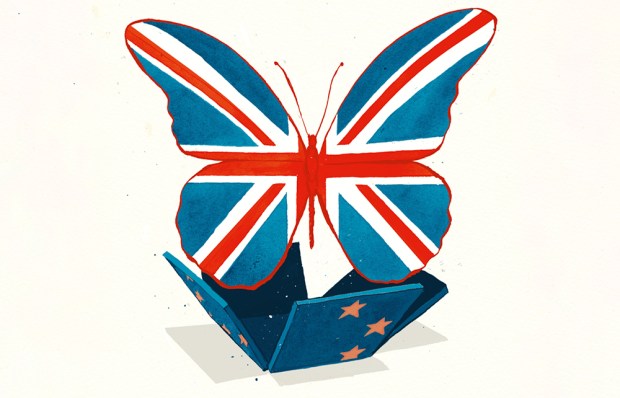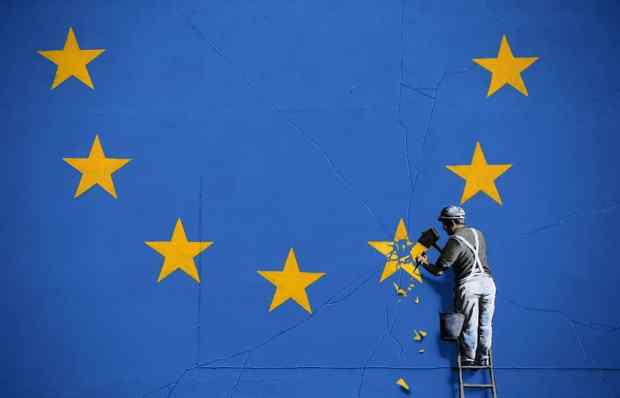This week Brexit reached its Somme. The government has been bogged down in votes on amendments inserted into its Brexit bill by the House of Lords. Theresa May saw off the threat of cabinet resignations only to have a more junior minister resign, as he put it, in order to voice the concerns of his constituents (although, as has been pointed out, a majority of them actually voted to leave the EU).
It all looks a mess. The Brexit process would have been unpleasant enough with the small majority which the Prime Minister inherited from David Cameron. After losing even that, it has become a game of internal pork-barrel politics — Downing Street has had to offer potential rebels just enough to satisfy their eager snouts without undermining the whole purpose: to leave the EU, the single market and the customs union.
Conservative rebels like to point out that only the first of those things was included on the referendum paper faced by voters two years ago, and that there is room for interpretation on the latter two. But they overlook the Conservative manifesto on which they were (just) elected in 2017, which promised all three.
The government could not, in any case, possibly agree to an outcome in which Britain left the EU but remained in the single market and customs union. Far from a compromise, it would be a worst of all worlds in which Britain found itself having to obey regulations and apply tariffs imposed by Brussels but without any say in what those regulations or tariffs were. The freedoms promised by Brexit (foremost among them the ability to follow our own trade policy) would be lost.
Thanks to last year’s manifesto promise, Theresa May was always likely to see off her rebels and somehow drag herself through this week’s quagmire. Now that she is on slightly firmer ground, she should be -seeking unity by formulating post-Brexit policies which almost all Conservatives can support.
So much has been said of the negative aspects of Brexit — the undoubted disruption and uncertainty it is bringing — that it is easy to lose sight of the new freedoms which come with it. The Prime Minister should seize the initiative by first -addressing the issue of immigration policy — one of the concerns, though far from the only one, that motivated Leave voters two years ago. She should emphasise, as the official Leave campaign did, that quitting the EU does not mean closing the door on migrants. Rather it means the ability to devise our own migration policy to favour skilled workers and disfavour those without skills or earning potential.
It is absurd, as was revealed this week, that overly restrictive rules on allowing in skilled workers from outside the EU meant that 2,300 doctors were prevented from taking up positions in the NHS between November and April. Sajid Javid says he is looking into the cap on Tier-2 visas, which has been blamed for turning away skilled staff, but this on its own will not go far enough. The government needs to ditch its unrealistic target of limiting net migration to no more than 100,000 a year and adopt a new policy which is more liberal towards migrants with skills and less liberal towards those without. Once outside the EU’s strictures on free movement we can have a policy that will not discriminate against workers from outside the EU. The main criteria for entering Britain should be what you will contribute to the economy, not where you come from.
At the same time the government needs to stop treating students as if they were undesirable, low-income migrants. While students might physically be entering the country, their education is a UK export. It is madness that the Home Office should seek to thwart the growth of higher education as an export industry.
There will be plenty of battles to come over Brexit. Still, the EU refuses to talk trade — even though the UK has made the concessions which Michel Barnier said were necessary for trade talks to commence. If and when they do begin, they will bring more bruising battles and threats of rebellion. But at the same time, the intransigence and unreasonableness of Brussels’s Brexit negotiating team has served to undermine further the EU’s reputation in Britain. Meanwhile, the resurgence of the euro crisis in Italy has reminded everyone of the deep flaws in the EU’s pet project, the single currency. There is little sign of significant change of opinion in Britain and nothing to suggest that if the referendum were re-run, the result would be any different — in spite of the apparent chaos in government.
There is no going back on Brexit, but there can and should be every attempt to build consensus for what follows. Liberal policies on trade and migration ought to go a long way to satisfy those who interpreted the referendum result as a regrettable attempt by the British public to turn their country in on itself. It cannot be emphasised enough that this was not the intention of many of those who campaigned for Brexit. On the contrary, the EU’s half-hearted commitment to free trade, compromised by its native protectionism on agriculture in particular, convinced Brexit supporters that Britain could grow a stronger economy outside the EU than inside it. Many Remainers, whether on the Conservative backbenches or in the wider population, will remain sceptical — but it is now in Theresa May’s hands to formulate policy which will bring a little more unity to what has become a fractious country.
Got something to add? Join the discussion and comment below.
Get 10 issues for just $10
Subscribe to The Spectator Australia today for the next 10 magazine issues, plus full online access, for just $10.
You might disagree with half of it, but you’ll enjoy reading all of it. Try your first month for free, then just $2 a week for the remainder of your first year.














Comments
Don't miss out
Join the conversation with other Spectator Australia readers. Subscribe to leave a comment.
SUBSCRIBEAlready a subscriber? Log in